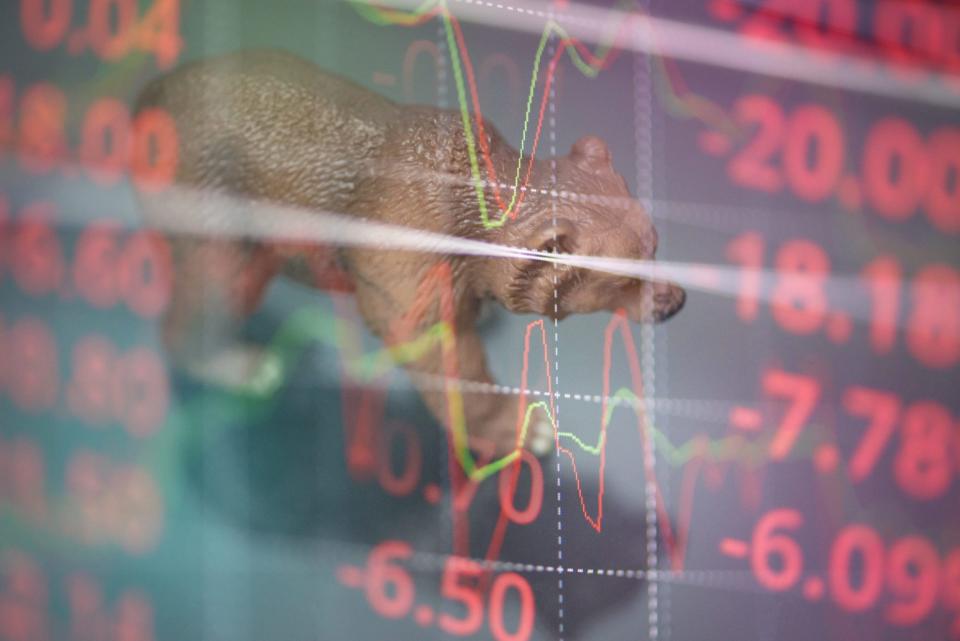Wall Street’s biggest bear—once dubbed ‘Gandalf’ for his market foresight—is out of a job after predicting a U.S. recession that never happened

JPMorgan’s chief market strategist is boxing up his belongings on Wednesday after more than two years in which his consistently wrong-footed calls cost the bank and its clients money.
Marko Kolanovic is “exploring other opportunities” after 19 years with the Wall Street firm, according to an internal memo first reported by Bloomberg and later matched by the Wall Street Journal on Thursday.
The 48-year-old physicist, who also serves as the bank’s cohead of global research, made a name for himself over the past decade, culminating in his 2020 contrarian call that the benchmark S&P 500 index would shake off a once-in-a-century pandemic and hit record highs within a matter of months.
But more recently, his bearish stance has proved to be ill-advised.
His forecast that the S&P 500 will plunge to 4,200 by the end of this year is the lowest of any major bank on Wall Street and implies a near 25% crash from current levels.
JPMorgan could not immediately be reached by Fortune for comment.
Bullish when he should have been bearish and vice versa
Kolanovic’s powers of prediction appear to have run out with the end of the stimulus-induced market rally three years ago.
Going into 2022, his COVID reopening trade banked on a fantastic year for stocks, only to see red-hot inflation figures force the Federal Reserve into a series of draconian interest rate hikes that crushed the market.
Right before ChatGPT ignited interest in generative AI later that year, he changed his bullish stance and began to fear the arrival of a recession in 2023. But the downturn never materialized, as a labor market shortage and rising real wages meant consumers still had plenty of spending firepower.
Instead he urged investors to shift their money out of equities, just as the market began to rally on the hope gen AI would unleash material productivity gains throughout the economy and power corporate profit growth.
Going into 2024, he stuck to his guns and continued to warn of further weakness.
When the S&P 500 had briefly dipped in April, Kolanovic argued the correction still had further to go.
In reality, by the time he made that call, it had already ended, and the broader equity market has added 11% in value since.
Biggest call of his career
A native of Croatia, Kolanovic earned his doctorate degree in theoretical physics from New York University before embarking on a career on Wall Street, first in derivatives with Merrill Lynch. He joined JPMorgan after his subsequent employer, Bear Stearns, was snapped up on the cheap in June 2008 following the latter’s disastrous bets on subprime mortgages in the run-up to the Lehman bankruptcy.
His prescient calls earned him glowing praise from Bloomberg’s columnist at the time, who celebrated him as “Gandalf” with an uncanny ability to see what was to come.
“It’s Marko Kolanovic’s market, we just trade in it,” the publication wrote.
The contrarian, whose research considers liquidity and the flow of funds, went on to wager in early 2020 that risk assets would brush off the harmful economic effects of COVID and continue their ascent as if nothing happened.
“Maybe the biggest [call] of my career was during the peak of the pandemic in late March and early April—the call that the S&P 500 would quickly recover to all-time highs,” he told Institutional Investor Research that year. “At the time, this was handily dismissed, but it already materialized in August.”
According to Bloomberg, Dubravko Lakos-Bujas will now replace Kolanovic as chief market strategist, while his cohead of global research, Hussein Malik, takes over sole responsibility.
This story was originally featured on Fortune.com

 Yahoo Finance
Yahoo Finance 